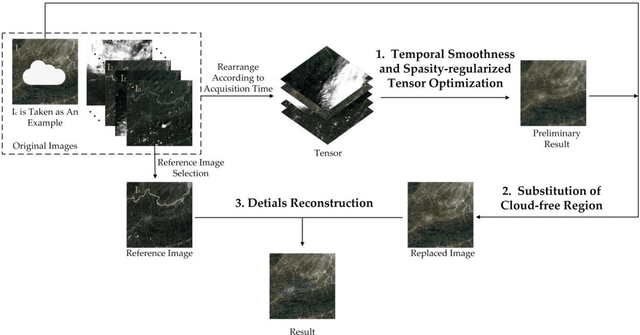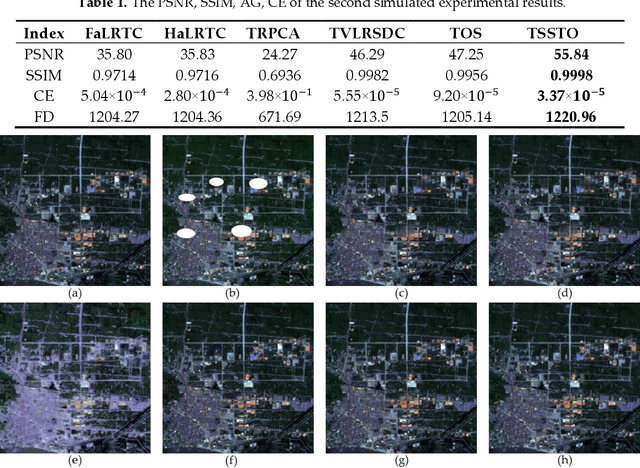Thick Cloud Removal of Remote Sensing Images Using Temporal Smoothness and Sparsity-Regularized Tensor Optimization
Paper and Code
Sep 01, 2020



In remote sensing images, the presence of thick cloud accompanying cloud shadow is a high probability event, which can affect the quality of subsequent processing and limit the scenarios of application. Hence, removing the thick cloud and cloud shadow as well as recovering the cloud-contaminated pixels is indispensable to make good use of remote sensing images. In this paper, a novel thick cloud removal method for remote sensing images based on temporal smoothness and sparsity-regularized tensor optimization (TSSTO) is proposed. The basic idea of TSSTO is that the thick cloud and cloud shadow are not only sparse but also smooth along the horizontal and vertical direction in images while the clean images are smooth along the temporal direction between images. Therefore, the sparsity norm is used to boost the sparsity of the cloud and cloud shadow, and unidirectional total variation (UTV) regularizers are applied to ensure the unidirectional smoothness. This paper utilizes alternation direction method of multipliers to solve the presented model and generate the cloud and cloud shadow element as well as the clean element. The cloud and cloud shadow element is purified to get the cloud area and cloud shadow area. Then, the clean area of the original cloud-contaminated images is replaced to the corresponding area of the clean element. Finally, the reference image is selected to reconstruct details of the cloud area and cloud shadow area using the information cloning method. A series of experiments are conducted both on simulated and real cloud-contaminated images from different sensors and with different resolutions, and the results demonstrate the potential of the proposed TSSTO method for removing cloud and cloud shadow from both qualitative and quantitative viewpoints.
 Add to Chrome
Add to Chrome Add to Firefox
Add to Firefox Add to Edge
Add to Edge